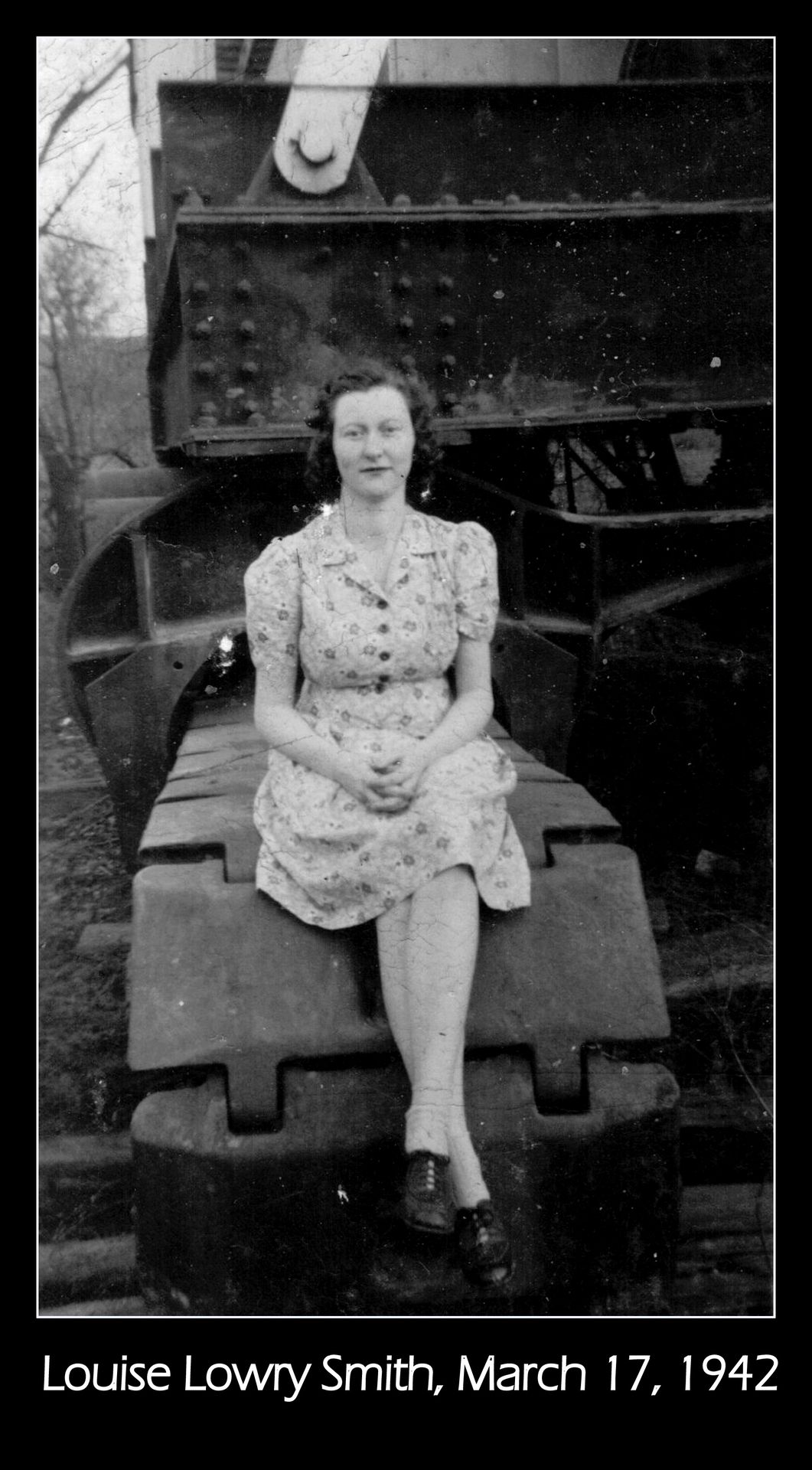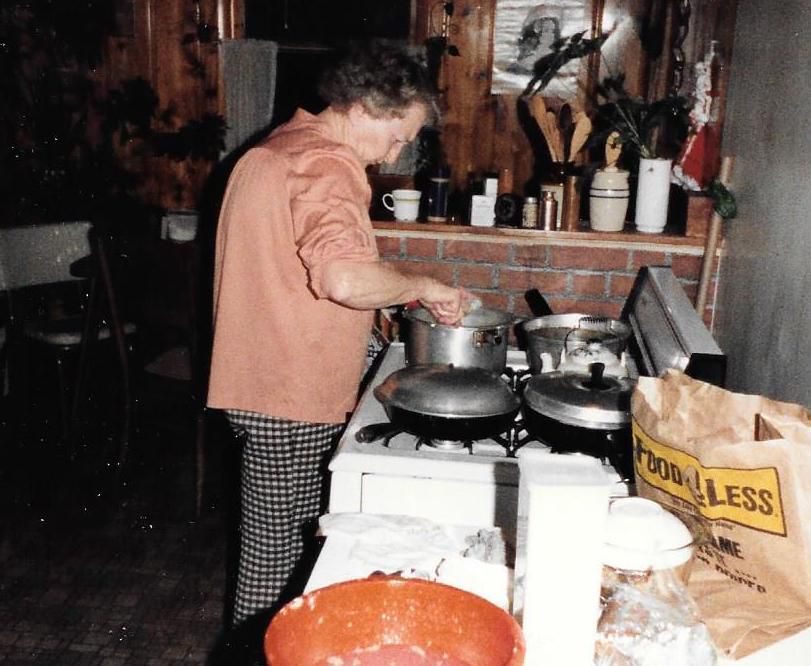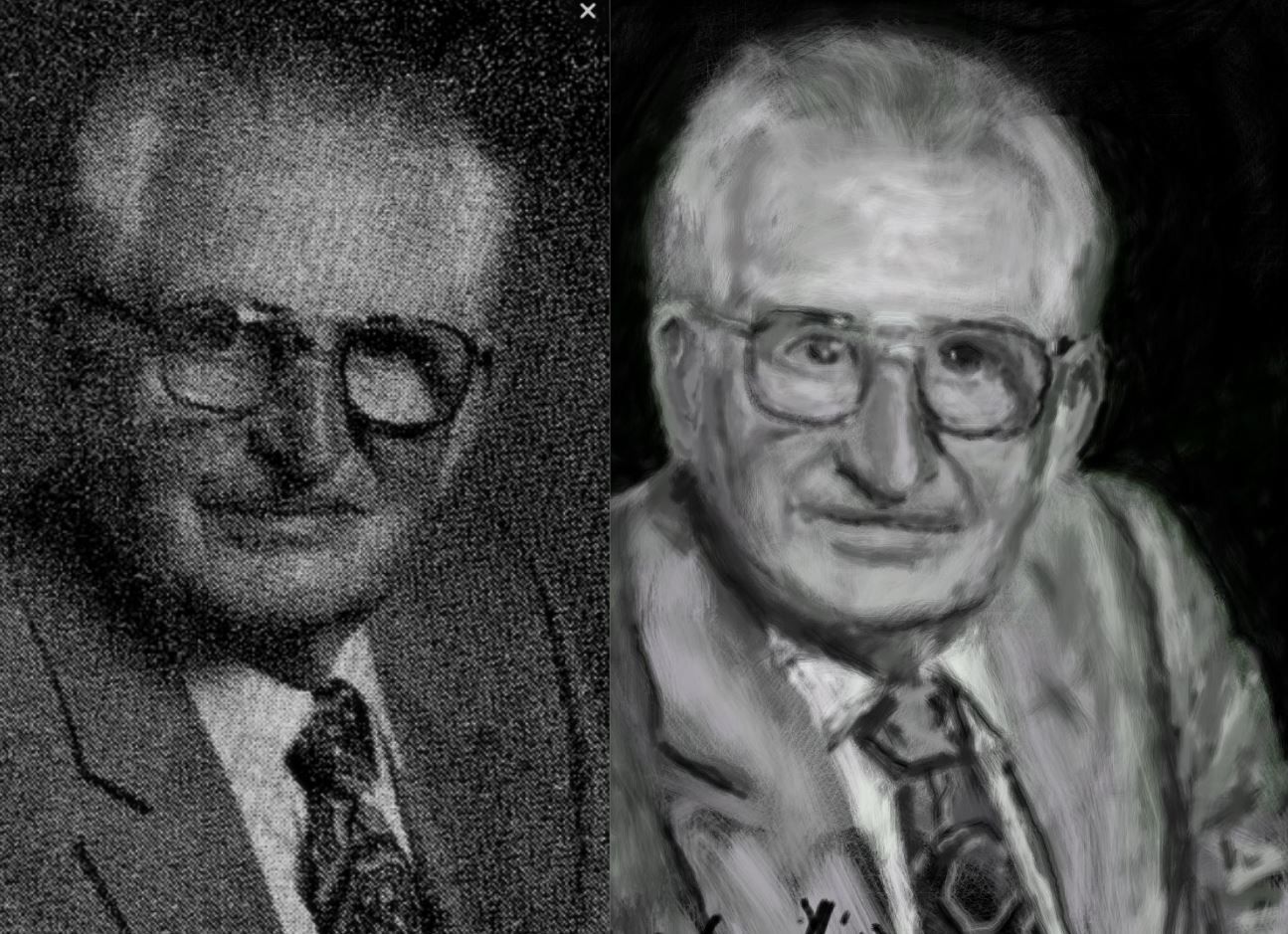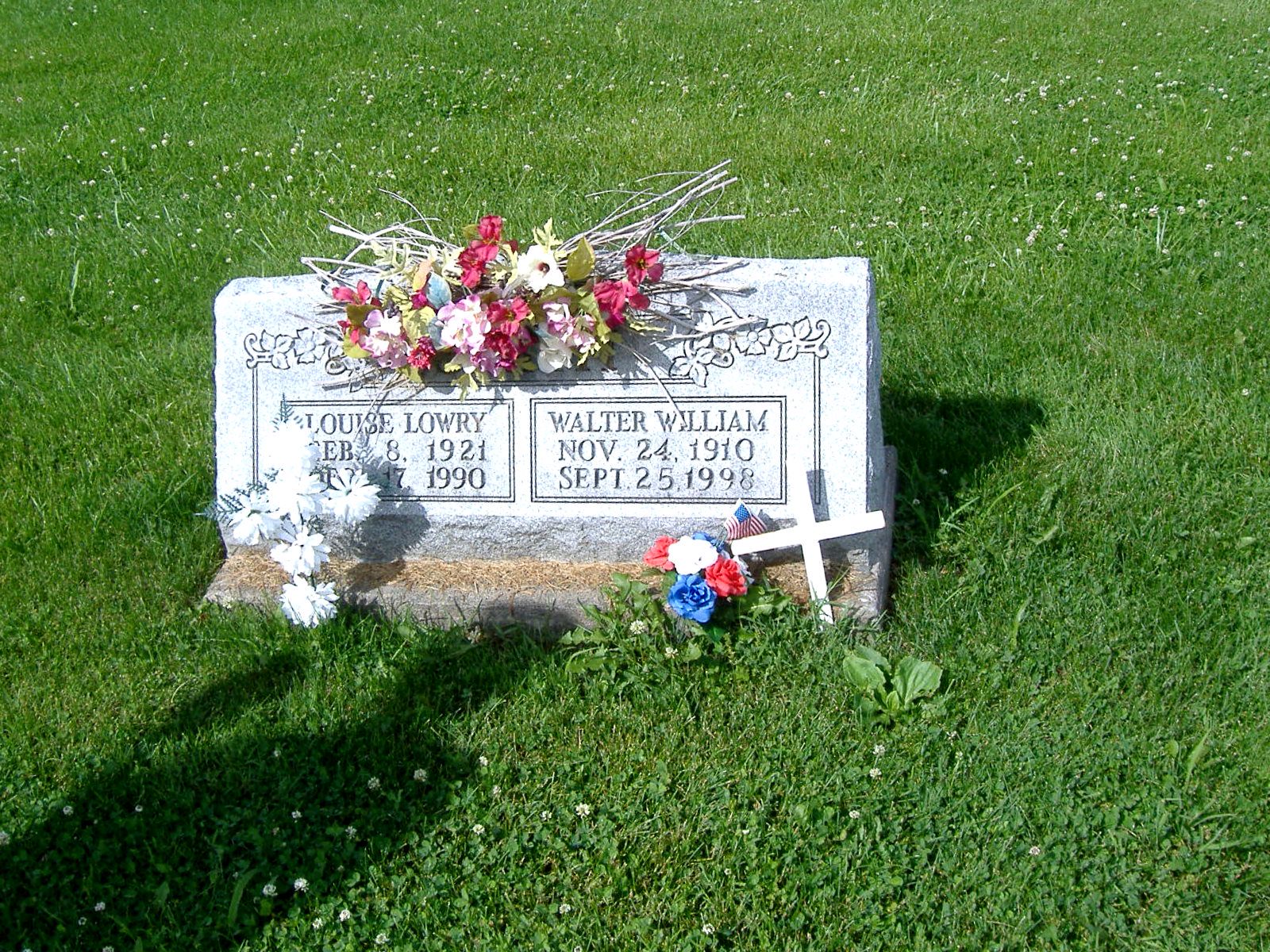Death Came for Momma

Death comes to each of us and it's name is Thanatos. When death calls out our number, we must answer, for we have no choice other than to pick up the receiver, and our fear of it has no consequence. I have never heard my mother express any fear of her own death in my lifetime; perhaps, she feared and didn't openly tell anyone. I was unaware. Dad on the other hand was constantly shivering about it, but who could blame him for having gone through what he did in WWII, and the resulting depression? Check the box; free of thunder, check; extreme panic attack, check; and the fear of death. He feared the doctor most of all, so he avoided getting help, other than popping Valiums that our physician prescribed, like candy. However, Mom was stoic, part of her upbringing I suppose. We, all of the family, are from pioneer stock, pure British Americans, and Mom drank tea; we were not allowed to drink coffee. Mom had this huge coffee brewer that was never used. She was a teetotaler, meaning no booze, and no alcohol, (a signing of the letter T after your name, and afterward proclaiming T for Totally no alcohol). I, as a youth, just figured the T was for "tea" only, and in my mother's case that 'tea' in teetotalers meant just that; tea. Dad drank before he met Mom and probably in the first few years. Dad's side, they weren't teetotalers, but they were tea naysayers.
I only saw Dad drink once before Mom died, and he went up to the corner market we called "Dubs," and came back with a six pack, but this was in the late fifties. He did something not expected. He offered me a swig. I tasted it and spit it out. I said, "Yuck!" He laughed and the memory fades. In one sip he stopped me from ever becoming a drinker, perhaps his intention, or perhaps his warped sense of humor. I still don't like the taste of beer. I used to rarely drink a dry wine or a screwdriver, but I'm diabetic; so all of that is forbidden for good reasons, but when Mom died and he was alone, he drank and the neighbors would call me up, and we came up to take care of him. Mom's death was sudden and oh so unnecessary.

Mom cooking a meal.
Mom complained to me about a rash on her back, directly in the back of the liver. I didn't think anything of it. She complains that it's hard to get up and down the hill to get the newspaper. She'd been retired for five years, her sixty-ninth year of life, and I just figure she's getting old. AP and I came to visit. It was Thanksgiving week and we are headed up to celebrate the holiday at her folks' place. It was coming upon Mom and Dad's fiftieth wedding anniversary and Mom said. "I don't want anything special, no celebration for our fiftieth wedding anniversary. I looked at her and I looked at Dad, he didn't say anything, and he was leery of being in crowds, so I assume that's what they both wanted. I brushed it aside and went to AP's folks. We return and catch leftovers at Mom's. AP said, "The meal tasted bland and dry." She was right, and it was not one of Mom's best, but I went home and continued life. By the first week of December 1990, I got a call. Mom was in the hospital. We rushed up to Moberly. I walk in through the emergency room and I see Doctor Dryer, Mom's general practitioner. He was old with white hair. He didn't have the trademark cigar in his mouth. He and the other doctors were going over Mom's x-rays, and he looked at me in passage, I know it was'nt good from the look on his face, I didn't pause, and instead I head to the elevator. Inside her room I found my mother and Dad. She seems fine and I dismiss the worry. We talked. She talked about losing my brother Paul, among other things. AP was with me, and she called her Dancer, but quickly corrected herself; "I mean, AP. I know you're not Dancer." The nurse came in and asked her when she had her heart attack, she didn't recall clearly, and said, "It must've been that time in the late forties when I was in the garden, and I felt this sudden pain in my chest, it felt like an elephant sat on me." She never thought anything about it, after all women didn't have heart attacks. The nurse pulled me out of the room and said, "A quarter of your mother's heart was shriveled up and dead. I remember the look on Doctor Dryer's face, as I came into the hospital, and I knew he knew that neither Curtis nor I should've been born. If they'd known, most likely another pregnancy, after Walt, wouldn't have been advised.

All my life, Mom lived with only part of her heart. Heart attack! Time has warped my memory both at the moment and today as I write this memoir. It was bending around me like a canvas over my head; time hesitated, and then sped up, and I was in another realm as the phone rang beside her bed. It was her best friend Nell, whom she grew up with, and who she'd remained friends with all her life, much like John and I. They were talking normally, like I've heard hundreds of times, when something suddenly changed. She told Nell and all of us, "My legs are cold. Olan, lay on my legs to warm them up. Nell, I have to go," and she hung up. I lay on her legs, and she still complains. "I'm so cold." Her body was shutting down, and the brain sent all the blood to her core; she was dying underneath me. Soon, the nurse rushed in and sent us out. They are scrambling to keep her alive. We retreat to the waiting room. I see a lifelong friend working as an aid. She was at the nurse's station, and she had a worried look on her face. The family gathered, all of us were there, and we waited. Mom was moved to ICU and we moved with her, just a different waiting arrangement. My mother slipped into a coma, and it was the last time I ever spoke with her. In the night we all stand vigil, and they asked one of us to wait with her. They asked me, I said, "I was with her," and I passed. My brothers passed as well, and we asked my sister-in-law, Sandye to do it. She asked AP if she wanted too, but I didn't think it was appropriate for my girlfriend to do the task, and I insisted that Sandye do it. She reported that she was conscious for part of the night as they talked. I was glad she was the one with her and not AP, but AP held this over me for the rest of our marriage. At that time in Mom's life, she wouldn't have known who AP was, and my mother would've been with a complete stranger.
Mom didn't come, ever again. It was too big a deal for this hospital; so we sent her to the hospital in Columbia, the one that saved my life. Now, we are in "House" mode. The doctor sent us home and said, "I want you to tear the house apart to find anything that might poison a teetotaler's liver." We headed back to Huntsville to check everything in the house. We found nothing. I decided to check the garage. There I found carbon tetrachloride on the shelf. The bottle was two-thirds empty. I look at the label and see it had the skull and cross bone on it. It was then I realized, it's the liquid Grandpa cleaned his presses with. In the house there were two new hand woven rugs Mom had just made for Christmas presents. I took this information to the doctor, and asked. "We didn't find anything but carbon tetrachloride, can that cause this?"
He replied, "Oh yes. Back in the 1970's it was banned, because we were losing dry cleaners left and right. What was your mother doing with it?" I explained my grandfather was a printer and used it to clean his presses, and the year he died it was banned. We just moved it over to our house with some of his stuff. Mom had used it all her life to clean old wool and make rugs. This Christmas season was the tipping point for her liver; it killed it. I spent more time in the hospital than out. AP and I put together every 1000-piece puzzle they had.
I was at AP's folk's, and they were comforting and helpful. The hospital called to tell me my mother had had a major heart attack, the woman with three-quarters of a heart, but she recovered, her liver began to heal, and the doctor was hopeful. He said, "No one survives this, but your mother is fighting, and she might be the first." I didn't know if he was using hyperbole or was telling me straight up, I am successfully cheered up, though. One of the nurses said if only they had brought her here first. I wanted to take her here, after all; it was the hospital that saved my life, but Mom wouldn't hear of it. She had another heart attack and they revived her, and deep down I know all chances are gone, but I didn't want to give up. They called us boys and Dad into a conference room, and it was time to make a choice. They explained what was happening. All her organs are shutting down, all but her partially functioning heart, and they didn't want to revive her again, but the choice was ours. I asked question after question, until Walt said, "Olan, just let her go." I was silenced. It was time, and I nodded in noiseless consent.
AP and I went downstairs to the cafeteria to eat, and waited, when over the speaker system I was told to report to the phone. I answered and they said, "If you want to see your mother one last time, you'd better hurry up to ICU." I was there just in time to see her one more time before she died. I arrived, and her heart was still trying to pump. I walked into her ICU room, and the nurse of death sat watching over her reading a book. I looked at her monitor and there was a heart beep, small but it was there. I looked to the nurse and pointed at the monitor, "See, it is still trying to work." I knew there was no resuscitation order for her, but she had been through enough. The nurse replied, "It is just the last of her electrical energy dissipating." I looked at my mother, incubated, her blood pools in her capillaries, and it was a blotchy blue color, not the color of life, and I knew she's gone. I didn't watch further. I was the minister afraid to touch his dying mother, or say one last time, "I love you." We are not the warm family of that said I love you, or of long hugs. I walk away, and Curtis would embalm her. He skipped the local funeral home; he wanted to do the honors, so he embalmed her in St. Louis, Missouri where he worked. We laid her out in our living room like in the old days. We hold the visitation at home. On the way home I cried for the entire thirty minutes to my hometown. AP was working.
Mom didn't like trimming trees, but she liked the wild look. All the trees we had in the yard she and I planted. Now, thirty-six years later, the view was cut off, and we boys gathered and decided to trim them all before the visitation started. We were busy trimming and one of us looked up and said, "Someone needs to check the body, she's probably rolling over in the casket." Curt replied, "Oh boy, ain't that the truth, but we wanted it to look neat for the visitors. Many people came by and brought food; they chat and tell stories; it was not a wake, and it was mournful, but we knew her spirit was somewhere in the room with us. The funeral was held in the First Christian Church Disciples of Christ, our home church, and all three of her boys wept. We didn't hear the service, and I don't remember anything but weeping, but I do remember Sue Harris shook our hands and offered her condolence, we couldn't speak. It was a Sunday, December 19th 1990, and she died on the 17th of December, less than seventeen days after entering the hospital. At the grave it was the coldest day I've seen since I'd performed a grave side service for a still born baby, and it was windy and spitting sleet, and it's about seven below zero Fahrenheit at Mom's grave side. No one wanted to be there, but it was well attended. Mom was well known by everyone around the town; it seemed like the day hell was frozen over, and heaven laid to earth one of their own.

Stone marker for my Mom and Dad in the Huntsville, Missouri City Cemetery, and I hope to be buried to the right beside my Dad as you face the stone.
Bạn đang đọc truyện trên: AzTruyen.Top